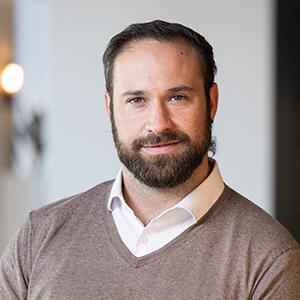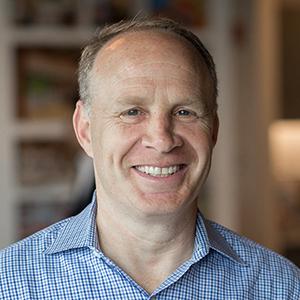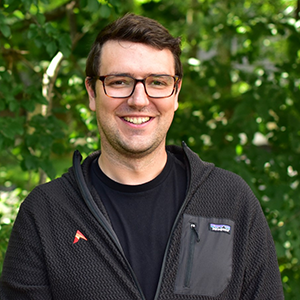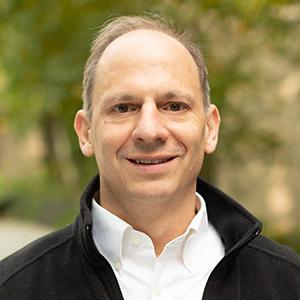Panel 1: Industry vs. Academia
Tuesday 1/14, 7:30 PM - 8:15 PM (Grand Ballroom)
Jelena Notaros (Assistant Professor, MIT)
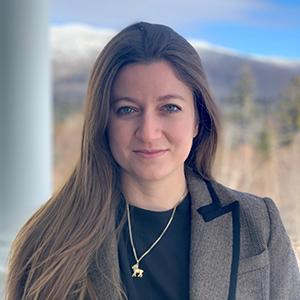
Professor Jelena Notaros is the Robert J. Shillman Assistant Professor of Electrical Engineering and Computer Science at the Massachusetts Institute of Technology. She received her Ph.D. and M.S. degrees from MIT in 2020 and 2017, respectively, and B.S. degree from the University of Colorado Boulder in 2015. Her research interests are in silicon-photonics devices, systems, and applications. Notaros was one of three Top DARPA Risers, a 2018 DARPA D60 Plenary Speaker, a 2023 NSF CAREER Award recipient, a 2021 Forbes 30 Under 30 Listee, a 2021 MIT Robert J. Shillman Career Development Chair recipient, a 2020 MIT RLE Early Career Development Award recipient, a 2015 MIT Grier Presidential Fellow, a 2015-2020 NSF Graduate Research Fellow, a 2019 OSA CLEO Chair's Pick Award recipient, a 2024 OSA CLEO Highlighted Talk Award recipient, a 2022 OSA APC Best Paper Award recipient, a 2022 OSA FiO Emil Wolf Best Paper Award Finalist, a 2014 IEEE R5 Paper Competition First Place recipient, a 2023 MIT Louis D. Smullin Award for Teaching Excellence recipient, a 2018 EECS Rising Star, and a 2015 CU Boulder Chancellor's Recognition Award recipient, among other honors.
Song Han (Associate Professor, MIT)
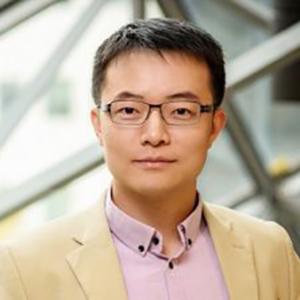
Song Han is an associate professor at MIT EECS. He received his PhD degree from Stanford University. He proposed the “Deep Compression” technique including pruning and quantization that is widely used for efficient AI computing, and “Efficient Inference Engine” that first brought weight sparsity to modern AI chips, making it one of the top-5 most cited papers in the 50-year history of ISCA. He pioneered the TinyML research that brings deep learning to IoT devices, enabling learning on the edge. His team’s work on hardware-aware neural architecture search (once-for-all network) enables users to design, optimize, shrink and deploy AI models to resource-constrained hardware devices, receiving the first place in many low-power computer vision contests in flagship AI conferences. His team’s recent work on large language model quantization/acceleration (SmoothQuant, AWQ, StreamingLLM) has effectively improved the efficiency of LLM inference, adopted by NVIDIA TensorRT-LLM. Song received best paper awards at ICLR, FPGA and MLSys, faculty awards from Amazon, Facebook, NVIDIA, Samsung and SONY. Song was named “35 Innovators Under 35” by MIT Technology Review for his contribution on “deep compression” technique that “lets powerful artificial intelligence (AI) programs run more efficiently on low-power mobile devices.” Song received the NSF CAREER Award for “efficient algorithms and hardware for accelerated machine learning”, IEEE “AIs 10 to Watch: The Future of AI” award, and Sloan Research Fellowship. Song’s research in efficient AI computing has witnessed successful commercialization and influenced the industry. He was the cofounder of DeePhi (now part of AMD), and cofounder of OmniML (now part of NVIDIA). Song developed the EfficientML.ai course to disseminate efficient ML research.
Joseph Casamento (Assistant Professor, MIT)
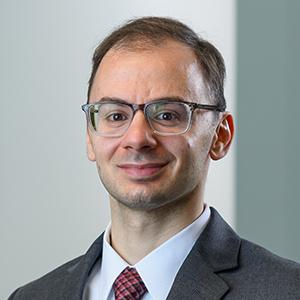
Professor Joseph Casamento’s research background and interests are in semiconducting materials and dielectrics, heterostructure design, thin film synthesis, and device fabrication. Specifically, he focuses on nitride semiconductors and related materials, widely used in light-emitting diodes and lasers, RF transistor amplifiers, and acoustic devices.
In his work, Professor Casamento aims to improve the performance and functionality of these devices with novel synthesis approaches, using new materials with emerging phenomena, understanding detailed structure-property relationships, and device simulation. Examples of emerging phenomena in this class of materials include ferroelectricity and superconductivity.
The applications of Professor Casamento’s research include heterogeneous integration, or the integration of separately manufactured components; high-speed and high-power devices; merging memory and logic functionalities; smart systems and devices; and neuromorphic computing.
Professor Casamento received a BS in materials science and engineering from the University of Michigan, Ann Arbor, and an MS and PhD in the discipline from Cornell University. Before coming to MIT, he was a postdoctoral scholar at Pennsylvania State University, as part of the Center for 3D Ferroelectric Microelectronics, a Department of Energy Frontier Research Center.
Duane Boning (Vice Provost for International Activities, Professor, MIT)
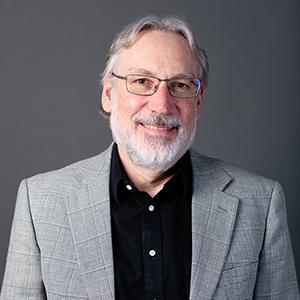
Esther Jeng (Senior Manager of Open Innovation, Lam Research Corporation)
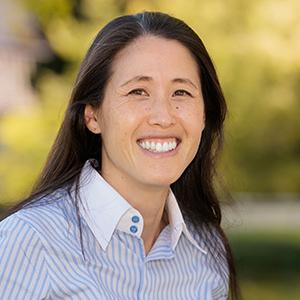
Dr. Esther Jeng is senior manager of open innovation in the Office of the CTO at Lam Research where she connects emerging technologies to Lam’s semiconductor products for manufacturing new generations of chips. She manages a portfolio of exploratory technologies in partnership with the university ecosystem to find solutions to the industry’s grand challenges.
Dr. Jeng has held multiple roles at Lam, leveraging 14 years of experience in atomic layer and chemical vapor deposition of thin-film metals. She has collaborated closely with leading-edge customers and led globally located engineering teams to develop products from initial power-up in the lab to high-volume production for logic and memory fabrication. Her areas of expertise include plasma and thermal thin film deposition, chemical process development and precursor handling in vacuum systems, and defect management.
Dr. Jeng’s first immersion into engineering was at MIT where she learned to foster technical discourse and execution at all levels, from the use of liquid nitrogen to make the smoothest ice cream to the development of fluorescent carbon nanotube sensors. She believes that the most robust solutions are developed from open discussions that support everyone to contribute. Dr. Jeng earned B.S. and Ph.D. degrees from MIT and an M.S. from the University of Illinois Urbana-Champaign in chemical engineering and has authored several papers and patents. She enjoys exploration: from cities worldwide to seedlings sprouting in her backyard.
Dirk Pfeiffer (Director, Microelectronics Research Laboratory (MRL), IBM Research TJ Watson Research Center)

Dr. Dirk Pfeiffer is the director of the Microelectronics Research Laboratory (MRL) at the IBM TJ Watson Research Center. The MRL is a semiconductor R&D facility with key capabilities including a 200mm wafer scale fabrication and its mission is to accelerate technologies from early stages of innovation to wafer scale development and manufacturing ("Lab to Fab" prototyping). Its project portfolio include quantum, semiconductor device and materials development, embedded analog devices for memory and AI applications, and others. Dr. Dirk Pfeiffer has 25 years of experience in semiconductor and material process development as well as building and operating semiconductor fabrication facilities. He is author and coauthor of 80 plus patents, publications as well as several IBM outstanding technology achievement awards and has a PhD in Chemistry.
Karen Nummy (GlobalFoundries)
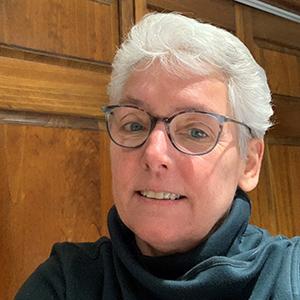
Karen Nummy was a Distinguished Member of Technical Staff at Globalfoundries, she has over 35 years of experience in semiconductor process development. After her recent retirement, Karen has rejoined Globalfoundries as a consultant helping to foster the relationship between MIT and GF, establishing a partnership to drive solutions to GF’s next generation of products. During her career at IBM and Globalfoundries, she worked on a wide range of technologies, including bipolar, CMOS, BiCMOS, SiGe HBTs, eDRAM as well as photonic devices. Karen was the lead integrator for IBM’s 45nm eDRAM and 22nm server products. Her most recent role was the lead for Globalfoundries’ photonic processes. During her career, Karen was very active as a mentor for women and young engineers. She has authored over 40 patents and numerous papers. Karen received her BS and MS in Material Science from MIT.
